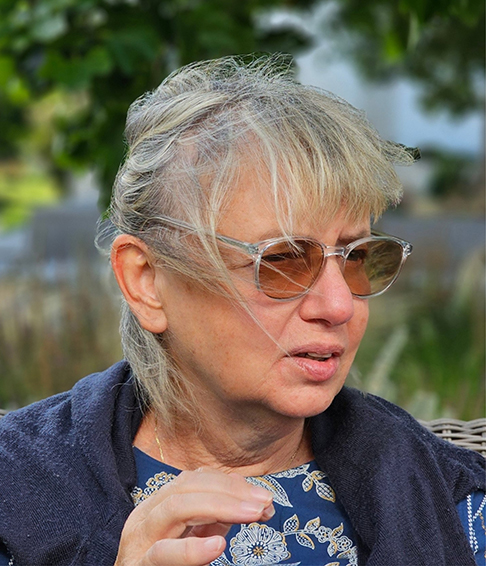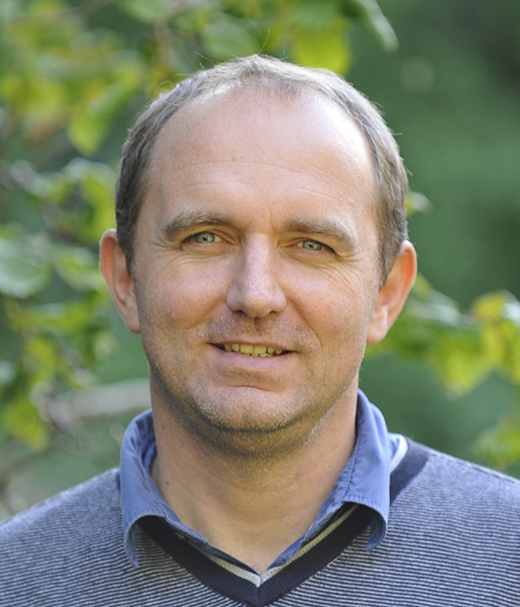Anne-Geneviève Bagnères, DR CNRS emeritus, pioneered the concept of chemical signature in insects. The chemical signature conferred by cuticular hydrocarbons is now recognized as one of the keystones of cohesion within social insects but also in recognition processes in many arthropod species. In parallel with research on cuticular hydrocarbons, she developed work combining chemical ecology and genetics, and has applied it not only to problems of great fundamental interest (evolutionary history of insect groups) but also to societal issues. For example, she used multiple kinds of evidence to retrace the history of invasions by termite species introduced into Europe, and has tackled not only the impact of invasive species, but also the impact of climate warming on the dynamics of invasive spread. AGB served the International Society of Chemical Ecology (ISCE: https://chemecol.org) as councilor several times, as the fifth woman in the history of ISCE to have been its president and the fourth awarded with the ISCE Silver Medal in 2023. In France, from 2014 to 2022, she was the director of the “Groupement de Recherche GDR MediatEC (Médiation chimique dans l’Environnement–Ecologie Chimique)” that federated around 60 laboratories and 320 researchers. She also has now an important role in federating the European community in Chemical Ecology by chairing an EU COST ACTION program: E-NICHE (European Network In CHemical Ecology, 230 participants from 41 countries today, https://e-niche.eu).
Anne-Geneviève Bagnères, DR CNRS émérite, a été pionnière du concept de signature chimique chez les insectes. La signature chimique conférée par leurs composés cuticulaires est aujourd’hui reconnue comme l’une des clés de voûte de la cohésion au sein des insectes sociaux, mais également dans les processus de reconnaissance chez de nombreuses espèces d’arthropodes. Parallèlement à ses recherches sur les composés cuticulaires, elle a développé des travaux combinant l’écologie chimique et la génétique, et les a appliqués non seulement à des problèmes d’un grand intérêt fondamental (histoire évolutive des groupes d’insectes) mais aussi à des questions sociétales. Par exemple, elle a utilisé plusieurs types de marqueurs pour retracer l’histoire des invasions par des espèces de termites introduites en Europe, et a abordé non seulement l’impact des espèces invasives, mais aussi l’impact du réchauffement climatique sur la dynamique de la propagation des invasions. AGB a servi l’Internationale Société d’Ecologie Chimique (ISCE : https://chemecol.org) comme membre du conseil plusieurs années, en tant que cinquième femme dans l’histoire de l’ISCE à en être la présidente et la quatrième à se voir décerner la médaille d’argent en 2023. En France, de 2014 à 2022, elle a été directrice du Groupement de Recherche GDR MediatEC (Médiation chimique dans l’Environnement–Ecologie Chimique) qui a fédéré environ 60 laboratoires et 320 chercheurs. Elle joue également un rôle important dans la fédération de la communauté européenne en écologie chimique en présidant un projet européen COST : E-NICHE (European Network In CHemical Ecology, 210 participants de 40 pays à ce jour, https://e-niche.eu).
Olivier Thomas was appointed established professor of Marine Biodiscovery at the University of Galway Ireland in 2015. In 2002, he obtained his PhD degree in Medicinal Chemistry from the University of Paris Descartes (France), followed by 2 years as a postdoctoral researcher at the French Atomic Energy Commission, Saclay, working on the biochemistry of proteins. He was then recruited by the University of Nice Sophia Antipolis (France) as a lecturer and was promoted to a full professor in marine environmental metabolomics in 2012. Since 2015, he has been coordinating the Marine Biodiscovery group at the University of Galway, whose research activities are centred on the natural products present in marine invertebrates such as seaweeds and sponges but also in microalgae, their biosynthesis, ecological roles and also their applications in different sectors, like the pharmaceutical industry. He has been contributing to the development and applications of metabolomics by NMR and MS in the marine environment. He is currently leading the Horizon Europe project COMBO about the applications of omics to study the metabolic pathways of terpenoids form seaweeds and alkaloids from sponges. He also coordinates the metabolomics component of the Tara Pacific expedition.




 CC-BY 4.0
CC-BY 4.0

